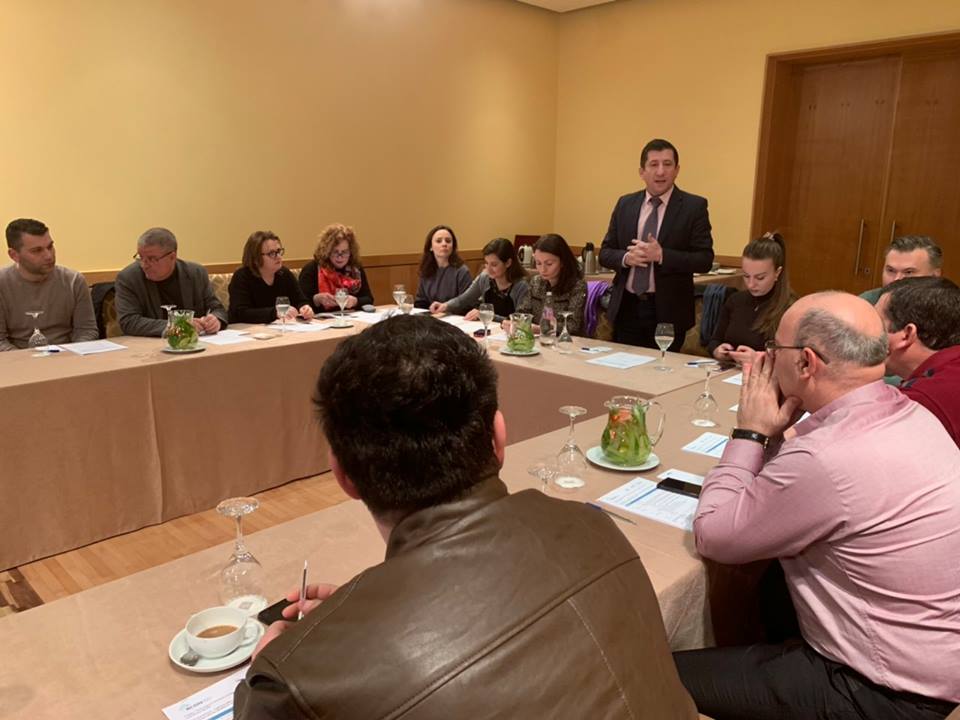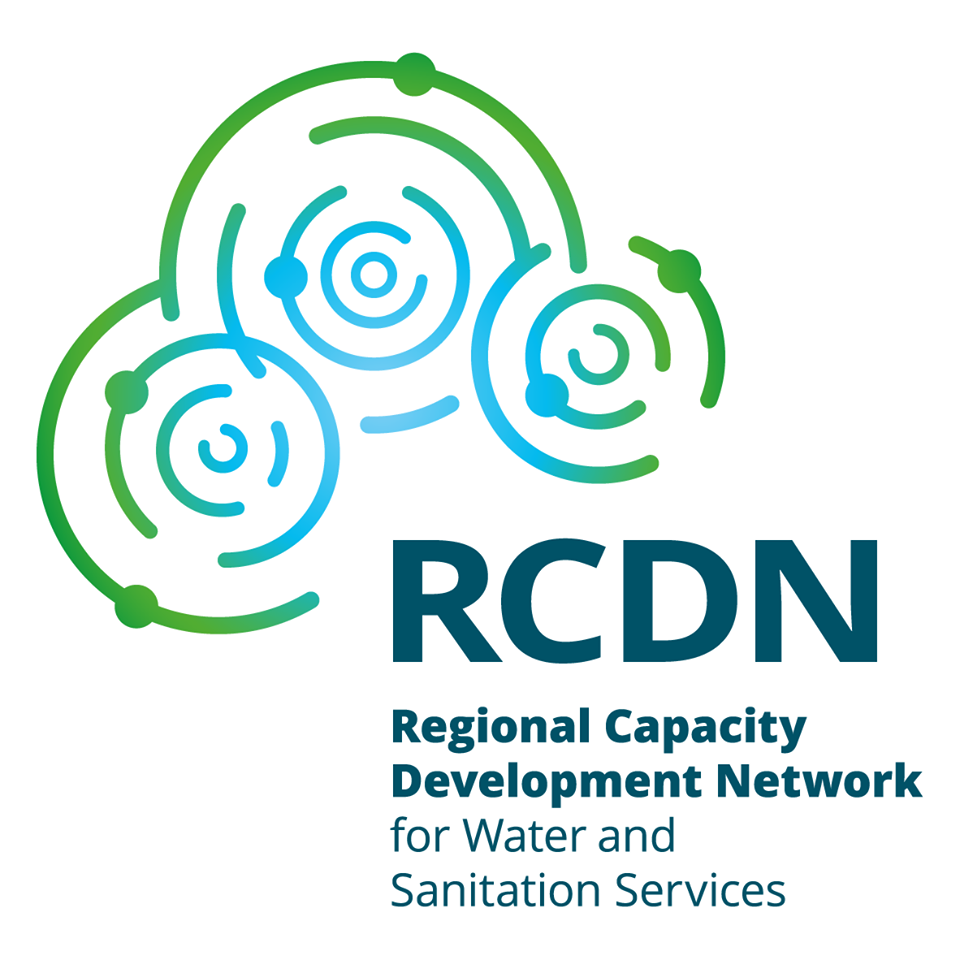The idea of protecting public health and environment could be a driver for women to work in the water and sanitation sector. From the other side modern utilities of the future would need staff with more diverse skill sets to respond to the emerging needs. By hiring, managing, and training a more diverse mix of employees mobilising more women, new and fresh perspectives can help shape the water utilities of the future. Associations of water utilities and municipalities play crucial role in providing the employees of their members with opportunities for professional capacity development, such as training, mentoring, or job promotions. By doing this they help also to overcome the problem of retaining qualified staff, in first place women, who have been more prone to leave the water utilities at all levels. Regional Capacity Development Network for Water and Sanitation services in SEE (RCDN) is currently developing a comprehensive set of CD Programmes for Wastewater (WW) mainly intended to employees of water utilities and municipalities. RCDN actively contributes to the gender balance in the wastewater sector in the Western Balkans region.
Apparently, the average person may not realise the importance of the wastewater sector which provided the foundation for humans to move forward. Some scientists argue that the most important discovery during the history was the sewer system. Simply, because without it, the civilisation would have been wiped out by disease and plagues. Without sewer systems it wouldn’t be possible to build cities where societies and cultures could make progress. One can therefore state that our lives have been shaped and largely influenced by the development of the industry that enabled wastewater collection and treatment.
Often wastewater sector contains gender-biased terminology that emphasizes masculine strengths and skill sets. For example, many utilities refer to the entry points for gravity sewers as manholes. While wastewater sector may still carry some stigma, the overall appeal of protecting the environment, making the world a more sustainable and better place for leaving, and the need for talent due to ageing workforce, makes great career opportunity, especially for women. The idea of protecting public health and environment could be a driver for women to work in this industry just like it is a driver for women going into nursing.
This is confirmed by Ms. Kristina Stojanova, who has left her years-long teaching career two years ago to face an even greater challenge and become a Head of the newly built Wastewater Treatment Plant (WWTP) in Kocani, North Macedonia – a capital investment of 22 Million CHF largely financed by the Swiss State Secretariat for Economic Affairs (SECO).
“I was simply fascinated that from nothing, we can do something. Namely, some 8,000 to 9,000 m3 of wastewater arrive daily at our WWTP. If left untreated, it will end up in the river, thus polluting the wildlife. However, through natural biological process, we recover valuable resources from the wastewater, discharge clean water into the nearby river, and by doing this we protect the environment. In addition, we use the rest of the wastewater for production of biogas, and consequently the biogas for production of electricity that covers majority of the plant’s needs” – underlines Ms. Stojanova.
Duties of a wastewater operator are an essential public service that require inter-disciplinary knowledge of wastewater safety, mathematics, chemistry, microbiology, treatment processes, and utility operations and maintenance. Other skills that can be developed as a wastewater operator involve communication, presentation, collaboration, as well as management.
“…In the laboratory of WWTP Butila where I work, physical and chemical analyses are performed every working day, which serve as a basis to determine the level of pollution of the incoming waste water as well as the level of cleanness of the water which is discharged in the recipient. Laboratory analyzes also show which process parameters need to be changed in order for treated water to comply with legal regulations, and that the values of sludge from different stages of the process correspond to the values that give the best results in sludge processing.
Working in the WWTP laboratory brings a high degree of responsibility since the wastewater contains various pathogens, pollutants and toxic substances, so it is primarily important to protect yourself and carefully handle samples when performing analyses. What is a great challenge during the work, but at the same time what brings the ultimate satisfaction is the degree of water purification of about 95% based on the analysis. The values of the parameters of the treated water are much below the maximum allowed values according the regulation, which indicates that the treatment process itself is at very satisfactory level.
To confirm that, I would like to share an example of an experiment which I used in the preparation of my master thesis, where I used the indigenous species of shrimp (Gammarus bosniacus Schäferna, 1923), as a model organism in a toxicological test. It has been shown that the treated water at the WWTP Butila is not toxic to the selected species, which makes it clear that it does not harm the ecosystem of the river Bosna” – explains Sanja Delija, M.Sc. Biologist in the Laboratory of WWTP Butila in Sarajevo, Bosnia and Herzegovina.
Modern utilities are evolving and becoming more customer oriented. The a.m. World Bank report concludes that utilities are responding to emerging needs and creating new departments, mainly in client-facing areas such as customer service divisions. Many positions which are required today simply did not exist some decades ago, so modern utilities would need staff with more diverse skill sets. Certain jobs no longer require physical strength because of new technology and digitalisation. Human resource management can be vital in preparing utilities to respond to these changes and promoting more diverse utility staff. By expanding the talent pool to truly include women, a utility can choose from the most talented recruiting pool to address the sector’s evolving needs. Through carefully designed interventions, utilities can address their specific needs and thereby ensure that they have the best possible trained and skilled workforce, including women, to support them in their task of providing water and sanitation services to all. By hiring, managing, and training a more diverse mix of employees, new and fresh perspectives can help shape the water utilities of the future.
In doing so, utilities and their founding municipalities can address their associations for support. Specialised training available through these organizations such as for example certification courses can be an entry point into water utilities. Entry level positions are important to begin carving a personal path in the water and sanitation services sector. Similarly, by providing employees with opportunities for professional capacity development, such as training, mentoring, or job promotions, is one way of overcoming the problem of retaining qualified staff, in first place women, who have been more prone to leave the water utilities at all levels.
“The wastewater sector has a great lack of representation of women. More women should therefore join us because they are in principle more sensitive to the impact of the environment compared to men. Diversity would be a great progress in this field. Moreover, women have a restraint and a care more about safety at work than men simply by their nature. Their increased representation in this field would also bring an improvement in working conditions based on the cleanliness. Thus, I would like to send a clear message that as a woman you will have opportunity to make an excellent career in the wastewater sector by doing a job that you will love. Care for environmental protection is a fundamental reason to join us” – argues Ms. Enkeleda Basha, Head of the WWTP Durres, Albania.
Regional Capacity Development Network for Water and Sanitation services in SEE (RCDN) is currently developing a comprehensive set of CD Programmes for Wastewater (WW) mainly intended to employees of water utilities and municipalities. The following areas are covered by the CD Programmes for WW:
- Introduction to WW systems for municipalities and water utilities that are in the process of planning and implementing WW infrastructure projects:
- CD Programme 1A: Introduction to WW systems for decision makers, and
- CD Programme 1B: Introduction to WW systems for managers and engineers.
- Enhancement of technical capacities of PUCs for O&M of WW systems for water utilities and municipalities which have finalised and operating WWTPs:
- CD Programme 2A: Enhancement of technical capacities of water utilities for O&M of WW Systems.
Thus, CD Programmes 1A and 1B refer to the planning and implementing phase of WW infrastructure projects. The CD Programme 2A refers to O&M of WWTPs that are already operating.
High emphases is given to: a) capacitation of local wastewater experts as trainers, majority of them coming from water utilities and municipalities, and b) involvement of the RCDN partner associations, aiming at delivering the CD Programmes by these national associations on long-term perspective, and facilitating know-how transfer.
The pilot delivery of the CD Programmes is foreseen in Albania, Bosnia and Herzegovina, and North Macedonia. It will start as soon as the situation with Covid-19 pandemic allows (estimated autumn 2021).
“The wastewater sector is facing many challenges as it has not yet established desired the stability as well as sustainability. The promotion of women and their continuous training will serve to meet those challenges. However, the women\’s qualifications and capacity development must also respond to the strategic needs of the sector to achieve the desired efficiency. The response to those challenges also depends a lot on the level of training, and in particular on its quality and delivery by the most qualified experts. Being a trainer in the field, I am pretty much sure that through the RCDN they can participate in high quality capacity development programmes and reach the desired level of knowledge and skills to work in the field of wastewater” – adds Ms. Enkeleda Basha.
In the light of the aforementioned, the RCDN actively contributes to the gender balance in the wastewater sector in the Western Balkans region. Namely, 6 out of 9 contact points in the RCDN partner associations for delivery of the WW CD Programmes are women. Furthermore, 23 out of 44 nominated wastewater experts by the RCDN partner associations who will be trained and will deliver the WW CD Programmes to water utilities and municipalities are women, and more specifically: 10 out of 14 in Albania, 9 out of 21 in BiH and 4 out of 9 trainers in North Macedonia.
RCDN believes strongly that this diversity will lead to new ideas, innovation, and progress in CD delivery in the region.
Hari Shutoski, Ph.D., GIZ ORF MMS




